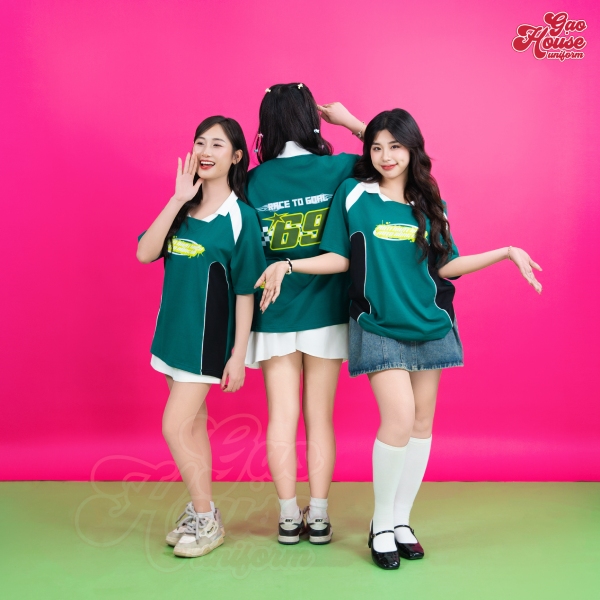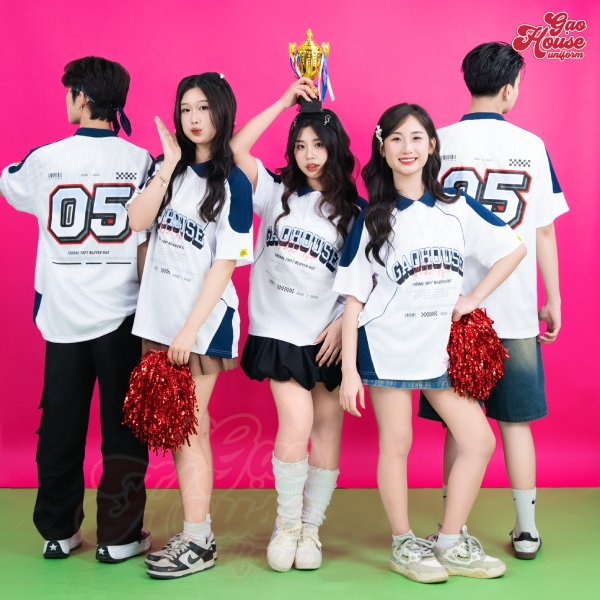ao dong phuc hoc sinh
Hosted by aohocsinh
Tweet ShareWhat Makes a Good School Uniform Design Work in Real Life As a school uniform tailor, I often say: a uniform that looks good on paper doesn’t always work in the classroom. Designing a great school uniform isn’t just about picking colors or matching styles—it’s about understanding how students live, move, and grow inside those clothes every day. See more : đặt áo đồng phục học sinh In this article, I’ll share the key elements that make a school uniform design work not just in theory—but in real life, based on my years of tailoring and fitting uniforms for thousands of students.
- Balancing Tradition with Modern Appeal Every school has its traditions—but uniforms also need to appeal to the students who wear them today.
What I recommend as a tailor:
Maintain signature elements like logo, house colors, or classic cuts
Refresh silhouettes with modern tailoring—slightly slimmer fits, cleaner lines
Introduce optional styles (e.g., pants or skirts) to support comfort and inclusivity
A good uniform should feel current while still honoring the school’s identity.
 2. Making Fit Inclusive and Comfortable
No two students are shaped the same—and a one-size-fits-all approach often leaves many uncomfortable.
2. Making Fit Inclusive and Comfortable
No two students are shaped the same—and a one-size-fits-all approach often leaves many uncomfortable.
Here’s what works:
Offer multiple size ranges and fits (regular, slim, relaxed)
Include adjustable features like elastic waistbands or button extensions
Tailor options for body positivity, ensuring every student feels confident
As a tailor, I always make sure students don’t just fit in the uniform—they feel good in it. Reference : may áo đồng phục 3. Considering Practical Wear and Movement A uniform that’s too tight, stiff, or delicate won’t survive a typical school day. Students need to move, play, bend, and carry things without restriction.
In practical design, I suggest:
Using fabrics with natural stretch or lightweight structure
Reinforcing stress areas like knees, elbows, and pockets
Designing breathable uniforms for active learning
Function should never be sacrificed for form—especially for growing, active students.
- Matching Design with Daily School Routines A great uniform design should match the real routine of a student—from morning rush to afternoon club.
Smart details I often build into designs:
Layerable pieces like vests, cardigans, or windbreakers
Pockets that actually work and are placed logically
Mix-and-match coordination so students can dress appropriately for weather and activity
It’s not about more pieces—it’s about the right pieces, worn flexibly through a busy day.
- Selecting Fabrics That Last and Feel Good A beautiful uniform won’t matter if it fades, shrinks, or feels rough after a few washes.
Fabric choices I always recommend:
Poly-cotton blends for durability and breathability
Gabardine or twill for bottoms—they hold structure but move well
Colorfast and wrinkle-resistant finishes for easy care
I always test sample materials before production to make sure they feel good not just once—but all year long.
 6. Designing With Students in Mind
The best designs aren’t made in isolation—they come from listening to students themselves.
6. Designing With Students in Mind
The best designs aren’t made in isolation—they come from listening to students themselves.
Ways to involve them:
Ask for feedback on trial designs or prototypes
Let them choose small touches (like trim colors or badges)
Respect their voices on comfort and fit—because they’re the ones who wear it
I’ve had students thank me simply for tailoring sleeves better. That’s when I know I got the design right. See more : https://gaohouse.vn/blogs/xu-huong-thoi-trang/ao-dong-phuc-quan-bida-dep 7. Final Thoughts: From Sketch to Schoolyard Designing a school uniform is more than a fashion project—it’s about understanding how students live. A truly successful uniform is one that looks smart, feels good, survives wear, and earns pride.
As a tailor, I believe every pocket, seam, and stitch should support students in learning, moving, growing, and belonging. Because when the design works in real life—it becomes part of the student’s success.